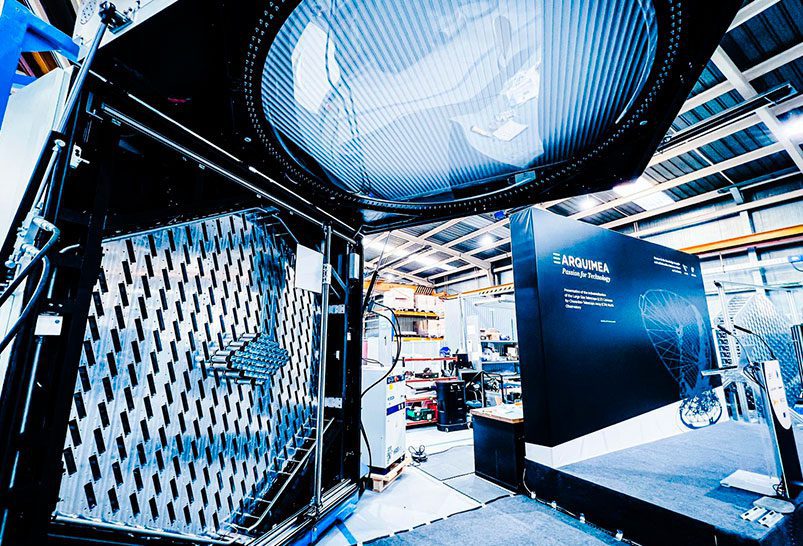The ARQUIMEA Research Center, the research center of the ARQUIMEA group located in the Canary Islands, has achieved a key breakthrough in the race for protection against quantum threats: a new implementation of the post-quantum cryptographic algorithm FrodoKEM on FPGA (Field-Programmable Gate Array) that multiplies the performance of traditional software-only solutions by ten.
This development positions Spain as one of the pioneering countries in designing critical technologies capable of withstanding attacks that quantum computers could unleash in the near future.
Quantum computing represents a scientific and technological revolution, but it also poses a serious challenge to global cybersecurity. Its ability to break current cryptographic algorithms jeopardizes everything from communications and financial transactions to critical infrastructures and defense systems. Therefore, there has been an international race to develop post-quantum cryptography: new algorithms resistant to quantum attacks, even before they arrive.
In this context, ARQUIMEA has been investing in this strategic line for over five years, convinced that technological sovereignty and national cybersecurity depend on the ability to anticipate. The team at its Canary Islands center has designed a solution based on a hardware/software co-design approach, combining a RISC-V processor with specific accelerators that optimize particularly costly operations of the FrodoKEM algorithm, such as matrix multiplication and Gaussian sampling.
The result is a highly efficient, secure, and flexible cryptographic architecture that does not require compiler optimization techniques, making it suitable for critical applications in defense, industry, or secure communications.
This new milestone is part of a broader ARQUIMEA strategy to ensure crypto-agility, meaning the ability to quickly adapt systems to different post-quantum algorithms without sacrificing performance or security.
The company emphasizes the need to integrate developments like this into national and European digital sovereignty strategies, as an essential part of an autonomous technological infrastructure facing emerging challenges.
Additionally, ARQUIMEA highlights the potential of the Canary Islands as a hub for disruptive innovation, capable of attracting talent and leading scientific advances with global impact. With this breakthrough, the Canary center positions itself as one of the few players in Europe actively working on hardware-based post-quantum cryptography solutions, reaffirming Spain’s role as a benchmark in technological defense against the quantum future.

